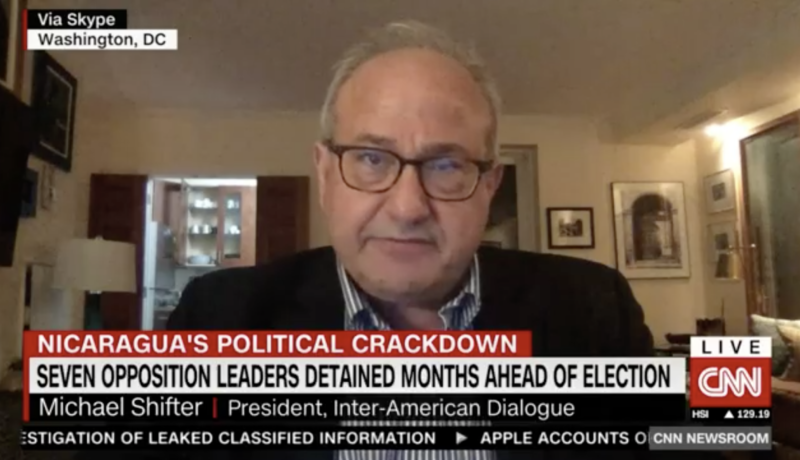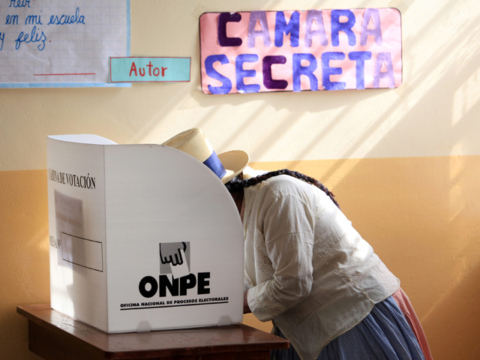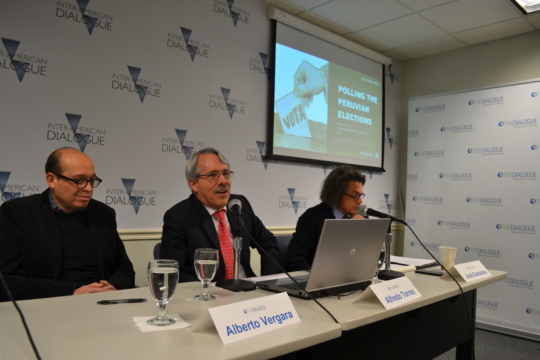Peru’s Election and Beyond: What’s Next?
Peruvians want an evolution, not a revolution.
Michael Shifter, president of the Inter-American Dialogue, spoke with Michael Holmes from CNN about the state of democracy in Latin America. The conversation covered how things are evolving in Nicaragua, after opposition leaders were imprisoned by the Ortega Murillo regime, as well as the potential repercussions of the recent elections in Peru and Mexico.
Question (Q): Seven opposition leaders have been detained by the Ortega administration in Nicaragua and many others are detained as well. What is the impact of this on the upcoming elections?
Answer (A): It is very difficult now to talk about a serious election. November 7 will be a complete farce. This has completely destroyed the opposition; this crackdown and way of repression are really unprecedented. It is very hard to take this seriously, there's absolutely no challenge, there's no competition. There's no level playing field and it's very sad. It's tragic, it means that the dictatorship will be further entrenched.
Q: What can the United States or other international powers do to push back on moves like this? Will an economy in shambles help balance the action so that it doesn't hurt the people of Nicaragua?
A: There have been sanctions that have been applied by the United States, but their individual sanctions against those who are very much part of the regime who have been corrupt, who have been responsible for human rights violations. There is also consideration of broader sanctions, sanctions that would eliminate any funding from the multilateral banks, funding for the financial institutions, such as the World Bank, the Inter-American Development Bank, and the International Monetary Fund. Of course that this is complicated because there the risk is that this would hurt ordinary Nicaraguans, but this might be the pain that is necessary for the regime to feel in order to pull back a little bit on this terrible crackdown.
Q: What is the Organization of American States doing? There has been a lot of silence from neighboring countries.
A: The Secretary-General of the Organization of American States, Luis Almagro, has now called for an emergency meeting of the permanent council, which convenes the representatives of all the member states, to consider the expulsion of Nicaragua, from the organization based on what's called the Democratic Charter, which was approved exactly 20 years ago, in 2001. This means that if there is any kind of alteration of the constitutional democratic order, which there clearly has been in this case, then that would require an expulsion of Nicaragua from the organization. Whether the member states and the government will go along with this, I think is a major question. This is going to be a test that we'll see in the coming days.
Q: Regarding the elections in Peru, how do you see the landscape there and the challenges moving ahead?
A: It is profoundly troubling. Peruvian democracy has been precarious for a long time. There has been an economic and social crisis that has been aggravated by the pandemic. Peru has the highest per capita deaths in the world as a result of Covid-19. Both of the candidates have credibility and legitimacy problems. It now looks like Castillo certainly has the edge. At this point, although it's being contested by the other side, the winner is going to have a huge problem unless there's an effort to bridge the gap between the two Perus. It really is a country completely split in two.
Q: What are your thoughts on the overall state of democracy in Latin America? I mean, we talked about Peru, Nicaragua, and Mexico, where do you see the direction in Latin America?
A: I'm very troubled and concerned. The economy is in bad shape in almost every country and if you have a bad economy, this produces social discontent and turmoil, we're seeing this in Colombia, it's quite dramatic and we're seeing it in Chile, as well. Brazil, we have an authoritarian leader in Bolsonaro. I would also note that, in the case of Mexico, there were recent legislative elections and there was some pushback. Mexicans still support Lopez Obrador, but some of the support has slipped a little bit, and there is a desire by the Mexicans to have some checks and constraints on his authority. Those results were a little bit more encouraging. It's difficult to generalize, but we can see some worrying trends throughout the continent.
[...]
Peruvians want an evolution, not a revolution.
Everything you need to know about Peru’s presidential elections.
Insight and analysis into an unpredictable presidential contest
 CNN
CNN

 Video
Video